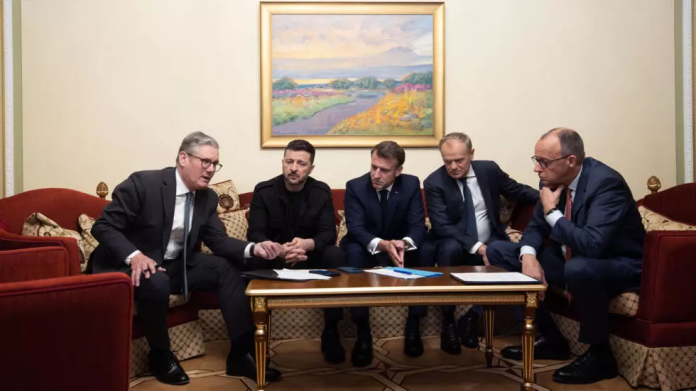The European Union’s deadline for Russia to accept a 30-day ceasefire proposal, set by French President Emmanuel Macron, lapsed on Monday evening without agreement, deepening fractures within the Western alliance over how to address the Ukraine conflict.
Macron warned that new EU sanctions would follow if Moscow rejected the ultimatum, a move now likely to test Europe’s resolve as internal disagreements stall coordinated action.
The French leader’s push for a temporary truce, framed as a “humanitarian gesture,” faced immediate resistance from Moscow, which dismissed the demand as “unacceptable coercion.” Russian President’s Press Secretary Dmitry Peskov reiterated that negotiations cannot proceed under ultimatums.
The language of ultimatums is unacceptable for Russia. You cannot speak to Russia in such a language.
Complicating matters further, the US stance reportedly undermined EU efforts to rally consensus. President Donald Trump’s opposition to fresh sanctions, rooted in his insistence that peace talks begin immediately, left European leaders unable to secure Washington’s backing.
However, Trump’s pressure appears to have forced Kyiv to act. Ukrainian President Volodymyr Zelensky, who had previously ruled out negotiations with Vladimir Putin under a September 2022 decree, made a stark reversal on social media late Monday, declaring his readiness to meet the Russian leader in Istanbul.
US Special Envoy Steve Witkoff said Trump had “issued an ultimatum” to Russia and Ukraine, threatening to end US efforts to resolve the war unless progress is made in direct talks.
The president has issued an ultimatum to both sides that without those direct talks and if they don’t occur quickly, then he believes the United States ought to step back from this conflict whatever that means and just not be involved.
Analysts suggest the expired EU ultimatum underscores a broader strategic impasse, as for now the threat of new EU sanctions remains a promise.
